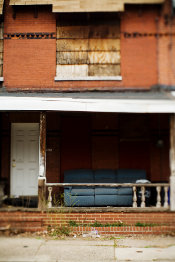
The Neighborhood Blight Reclamation and Revitalization Act (the “Act”) empowers municipalities to take legal action against owners of deteriorating properties and deny municipal permits in certain circumstances. Municipalities across Pennsylvania are drafting ordinances, and in many cases, are ready to adopt ordinances in order to implement the provisions of the Act in their respective communities. The Act becomes effective on April 25, 2011; however, the impact of this Act remains to be seen and will likely depend upon the number of municipalities that utilize the tools offered by the Act and how effectively the Act is enforced locally. More discussion regarding the Act can be found on the Pennsylvania State Association of Borough’s website in their November 2010 edition of The Frontline.
Owners of deteriorated properties facing more aggressive enforcement action may be well served by reviewing the tax relief offered to them in the Local Economic Revitalization Tax Assistance Act (referred to as “LERTA”), 72 P.S. Section 4722 et seq., which offers tax relief to commercial construction or improvements within areas designated as a deteriorated area, and in the Improvement of Deteriorating Real Property or Areas Tax Exemption Act, (the “Improvement Act”), 72 P.S. Section 4711 et seq., which offers tax relief to residential construction or improvements. The intent of LERTA and the Improvement Act is to encourage construction improvements to be made in blighted areas by not taxing the property owner for the increased assessed value of the property for a certain period of time. Many deteriorated properties facing enforcement action by municipalities are also located in areas designated as being eligible for tax relief. Property owners bringing properties into compliance might also be eligible for tax relief associated with the improvements being made to the properties and should certainly seek such relief if it is available.
For a full copy of the Neighborhood Blight Reclamation and Revitalization Act’s provisions, see Senate Bill No. 900.



